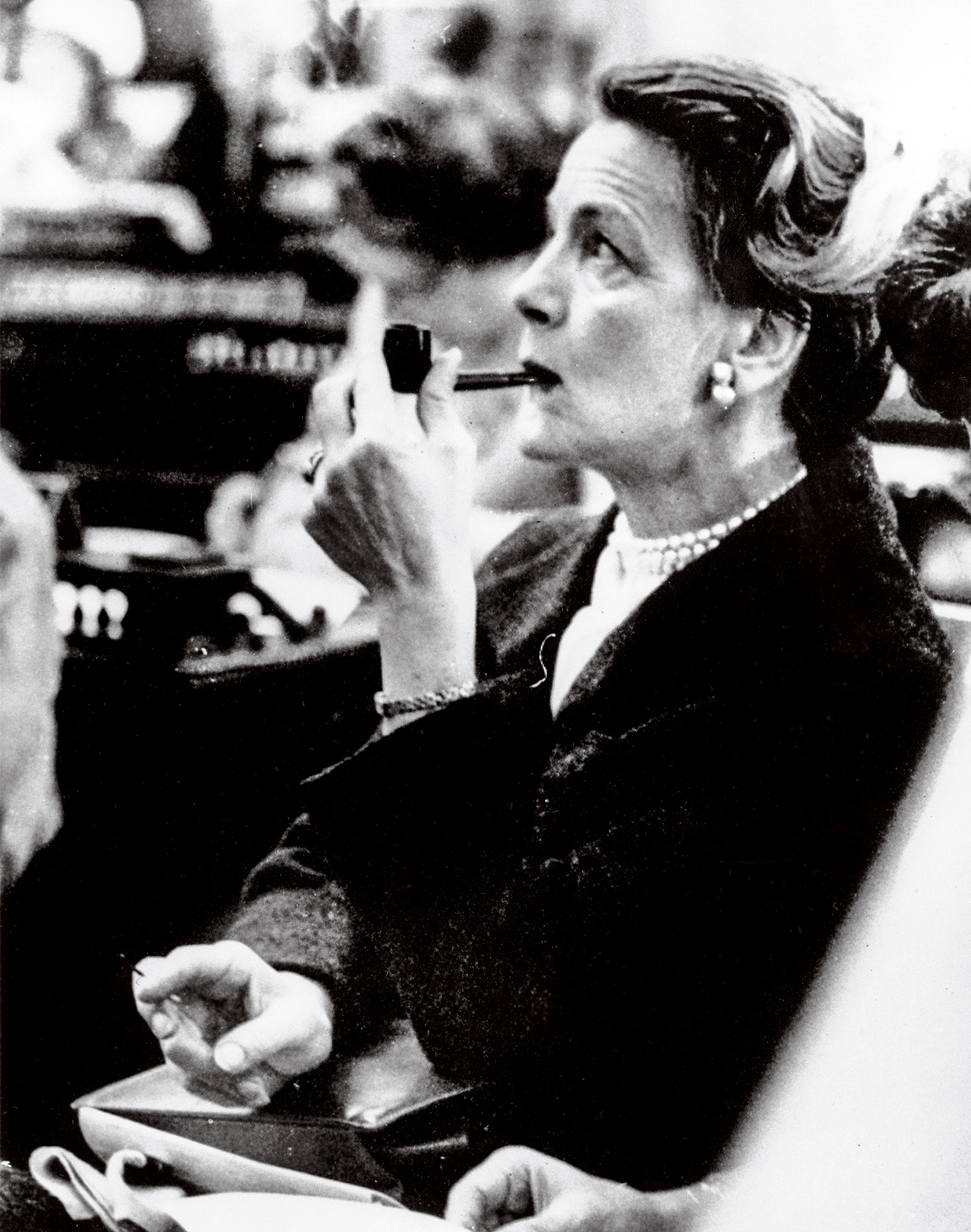Building Identity
Posted on July 2, 2019
Jonathan Reckford ’84 stepped off the corporate path and followed his faith to the leadership of Habitat for Humanity, now a $2 billion builder that’s also an agent for change in housing policies worldwide. (Habitat for Humanity International/Ezra Millstein)
Jonathan Reckford ’84 stepped off the corporate path and followed his faith to the leadership of Habitat for Humanity, now a $2 billion builder that’s also an agent for change in housing policies worldwide.
by Elizabeth Leland ’76
Jonathan Reckford ’84 was working alongside a widow in Cambodia, helping build a Habitat for Humanity home, when a storm blew in and everyone rushed inside.
Torrential rain lashed at the one-room house. The widow, Soy Lorng, stood rigid, her eyes flitting to each wall and to the ceiling. With her two children and mother, she had been living beneath a tarp along a street in Phnom Penh and had spent much of the previous night standing, holding pieces of the shelter together to keep out a driving rain.
When she realized a storm couldn’t penetrate her sturdy new home, her shoulders softened and she smiled.
“It was one of those moments that seared into me,” said Reckford, chief executive officer of Habitat for Humanity International. In retelling the story five years later, he recalled the Arabic word for home: bayt.
“Bayt speaks to identity,” he said. “It goes deeper than having a physical house. If you’re protected from the elements and have water and sanitation, it has a huge effect on your health. You spend less time on surviving. Kids can go to school. Adults can be more productive. They can earn a better income.
“I’m trying to help the world understand that it’s not just a house. It’s not just physical. It’s also psychological.”
At UNC’s Spring 2019 Commencement, Reckford urged the class of 2019 to ask themselves what they are uniquely wired to do.
If you had told Reckford 35 years ago, when he graduated from Carolina and took a job at Goldman Sachs, that he would devote his life to making decent and affordable shelter available to low-income families, it would have made no sense to him. But looking back, he said, his circuitous journey seems ordained.
Earlier this year, he joined other employees from Habitat’s central office in Atlanta at a warehouse in nearby Covington, Ga., where they assembled emergency shelter kits in anticipation of the 2019 hurricane season. Gathered in a circle, they introduced themselves and stated what they do for the nonprofit. When Reckford’s turn came, he said, “I’m in disaster response,” eliciting a few laughs from employees who know him as The Boss.
Tangible, intangible impact
Colleen Ridenhour, senior vice president for development, said she’s never heard Reckford introduce himself as CEO of Habitat, which has grown under his 14-year leadership into one of the largest charities in the United States with $2 billion in revenue. “I’ve worked with a lot of CEOs, and I can’t say there are many who lead with his humility,” she said. “It’s one of the long list of reasons people respect him.”
Reckford is soft-spoken with a quiet confidence. He can be deeply earnest and thoughtful, but he tempers his serious side with a sense of humor. “I always tell people, he’s understated until he needs to be otherwise,” said Joe Price, a former Bank of America executive who chairs Habitat’s board of directors.
At the warehouse, one of the toughest jobs fell to Reckford because of his height — 6-foot-3. As he lifted the 50-pound emergency shelter kits and stacked them six high onto pallets, beads of sweat ringed his broad forehead.
“I absolutely love Habitat,” he said on a break that day. “Over and over and over, we can see that improving families’ living conditions has such a tangible and intangible impact on their well-being.” He recalled Soy Lorng. Now that she lives in a house, her children are in school, she’s remarried and she earns $5 a day selling vegetables — a paltry amount, but five times what she made when she was homeless.

Reckford is described as leading with humility, helping grow Habitat into one of the country’s largest charities. Millicent Fenwick, his grandmother, was an inspiration. (AP Photo)
“I think in our polarized world, the other thing I love is that Habitat is a Christian ministry that is radically inclusive,” Reckford said. “I cherish both those pieces. It gives me an opportunity to put my whole self in and also do something to bring people together.”
One of his earliest inspirations was the late U.S. Rep. Millicent Fenwick, a colorful, pipe-smoking civil and human rights pioneer. Walter Cronkite called her “the conscience of Congress,” and Garry Trudeau reportedly immortalized her as Lacey Davenport in his Doonesbury comic strip. Reckford knew her as Grandma.
Whenever he and his four siblings visited her estate in Bernardsville, N.J., Fenwick would recite for them what she called her life verse, Micah 6:8, now inscribed on her gravestone: “What does the Lord require of thee, but to do justly, love mercy and walk humbly with thy God.” And then, she would invariably ask what each of them planned to do to be “useful” in the world.
“I found her fascinating,” Reckford said. “Before her public life, she wrote Vogue’s Book of Etiquette in 1948. To graduate to the grown-up table in her house, you had to sit up straight, discuss food problems in sub-Saharan Africa and read The New York Times.”
It would take two years in investment banking and 13 years at for-profit corporations before Reckford figured out the answer to his grandmother’s question. In a tweet last year, he quoted Scottish theologian William Barclay: “There are two great days in a person’s life — the day we are born and the day we discover why.”
Perspective regained
Reckford grew up in Chapel Hill, where his father, Kenneth Reckford, was Kenan Professor of classics at UNC. His mother, Mary Stevens Fenwick Reckford, was active in the civil rights movement. They gave their son two middle names — Thomas More — in honor of the 16th-century Catholic saint. After his mother died in 1989, Reckford’s father established the Mary Stevens Reckford Memorial Lecture in European Studies, which is still held on campus every February.
A Morehead-Cain scholar, Reckford met his wife, Ashley Richards Reckford ’83, in an art history class. After they graduated, she went on to law school. Reckford, a political science and English major, said he talked his way into a job as a financial analyst at Goldman Sachs. He found the work intellectually interesting but not emotionally satisfying. He said he became troubled by the disconnect between the big-dollar transactions at the New York bank and the homeless people he encountered in Times Square on his walk to and from work.
After two years, Reckford left to “regain perspective.”
He moved to Korea on a scholarship from the Henry Luce Foundation and helped market the 1988 Seoul Olympic Organizing Committee. He also landed the unlikely position of coaching the Korean rowing team. He had crewed competitively at St. Paul’s, an Episcopal prep school in New Hampshire, and in 1980 his team won the coveted Henley Royal Regatta on the River Thames in England. At Carolina, he captained and coached the club team. Reckford admits that coaching Olympic rowers was a stretch — even for a team
that only qualified because it was from the host country.
“As the son of a classics professor, I think we all need to be very careful of that idea of hubris. The idea of putting ourselves on par with the gods.”
–Jonathan Reckford ’84
His most transformative experience in Korea came during Bible studies with another Luce Scholar, a pastor and ethics professor who was the only other Westerner he saw that year. Their Monday night discussions stretched for as long as five hours and, over time, Reckford said, he resolved to live “a life of faith.”
Back in the United States, he got his MBA from Stanford with a certificate in nonprofit and nonpublic management. But when he was offered a job in Washington, D.C., where Ashley worked at a law firm, he jumped back into the corporate world. For the next 13 years, he held executive and managerial positions, first for Marriott, then the Walt Disney Co., Circuit City and Musicland.
Years later, in a speech to MBA students at Stanford, Reckford talked less about mergers and acquisitions than about faith and values, warning the students not to be tempted by other people’s definitions of the good life: “As the son of a classics professor, I think we all need to be very careful of that idea of hubris. The idea of putting ourselves on par with the gods.”
In 2002, when his job at Musicland was phased out after a merger with Best Buy, Reckford confronted his own ego. Beneath his quiet demeanor lurks a Type A personality. For so long, his identity was wrapped up in the persona of successful executive. Suddenly he found himself chaperoning his children’s school field trips and volunteering to teach pastors at his church about management. He was 40 and not sure of his path forward.
“It was tough on my ego,” he said, “but it probably was really healthy for me.”
Losing his job led to another life-changing experience. A lucrative severance allowed him to travel to India on a two-week mission trip where once again he sought to regain perspective. He met with the Dalits, known as the “Untouchables,” who are permitted only to clean toilets or pick up bodies of dead animals. The devastation of their lives had a profound impact on Reckford.
“I felt I was done with the corporate world,” he said. “I was sure I would do something to help eradicate poverty.”
Making the switch turned out to be harder than he thought. He was passed over for a number of nonprofit jobs. Eventually his volunteer position with the church led to an offer of a paying job, overseeing both ministers and finances, but trusted friends advised him not to take it.
“Ashley and I prayed about it, and we really had a sense it was what we were supposed to do. I look back and I genuinely believe that that time waiting to find a job and the couple of years serving in the church are exactly what I needed for serving in Habitat.”
In 2005, when an executive recruiter called about the CEO job, Reckford said he felt a chill run down his spine. He believes it was the job God had been preparing him for and remembers asking, “Does the CEO have to be someone famous?”
‘One of my heroes’
Habitat’s board was looking for a new brand of leader, one with corporate experience and the strategic skills to expand its mission and its donor base. It was a critical time for the nonprofit. Habitat had become embroiled in a public relations scandal after its charismatic founder, Millard Fuller, was fired following an accusation of sexual harassment. Fuller denied the claim, and some donors switched their support from Habitat to his new charity.
“They needed a fresh look,” said Susan Boren, then a partner at the executive search firm Spencer Stuart, who was tasked with finding CEO candidates, “and they needed it from someone who was smart enough to think outside the box.”
Reckford’s name came up in several interviews, Boren said, but he wasn’t an obvious choice. “He had not run a large nonprofit organization. He hadn’t really done fundraising. He hadn’t had the experience in housing. He didn’t come out of that industry.”

Former President Jimmy Carter, pictured with his wife, Rosalynn, is a longtime hands-on Habitat supporter. He was convinced Reckford was the right person to run the organization. (Habitat for Humanity International/Jason Asteros)
But the more she got to know Reckford, the more she became convinced he was right for the job. As part of the hiring process, Habitat’s most famous volunteer, former President Jimmy Carter, also interviewed Reckford and became convinced, too.
“One of my heroes,” Carter said about Reckford in a handwritten response to questions for this story. “… [A] superb leader of Habitat and an inspiration to me and others who know him.”
Reckford brings an intriguing mix of business smarts and spirituality to his role as chief executive.
“I always think of him as the perfect blend,” said Mike Carscaddon, CFO for Habitat and Reckford’s occasional running partner. “He’s very smart. He has a business background. But he also approaches his job from the perspective
of his faith. It’s not about him. It’s about the mission.”
Some grassroots supporters were initially skeptical about “going corporate,” which included paying their new leader an executive’s salary of $210,000 (up from $79,000 for Fuller). But Habitat’s investment in a corporate CEO has paid huge dividends. The nonprofit now works in 1,200 communities across the United States and in more than 70 other countries, making it one of the leading housing nonprofits in the world.
In perhaps the most dramatic measure of success, Habitat helped 8.7 million people in its most recent fiscal year, up from 125,000 when Reckford was hired.
“He took Habitat where he found it and, with never a denigrating word whatsoever on what came before, he has worked to augment the talent by one step at a time as he augmented the vision,” said Mary Lynn Staley, a philanthropist from Minnesota who serves on the board. She described Reckford as “a careful leader,” not afraid to push back when he thinks the board is asking him to move too quickly, but also “not afraid to push the envelope.”
Under his direction, the nonprofit broadened its outreach. In response to the 2004 tsunami in the Indian Ocean and the 2008 housing crisis in the United States, Habitat began rehabilitating existing homes in addition to building new houses — and continues to do so.
Reckford believes philanthropy alone never will solve the housing crisis. “We’ll only be successful if we can change housing policies and get the markets to better serve low-income families.”
But Reckford believes philanthropy alone never will solve the housing crisis. “We’ll only be successful,” he said, “if we can change housing policies and get the markets to better serve low-income families.” And so, Habitat has helped get laws changed in developing countries where women traditionally could not be homeowners. And in 2012, the nonprofit launched a $100 million MicroBuild Fund that enables very low-income families to get small loans for home improvements with little or no collateral. Habitat lends money to microfinance institutions that, in turn, lend money to the families.
As Habitat’s visibility rose around the world, so did Reckford’s. He now attends the yearly gathering of the World Economic Forum in Davos, Switzerland, where he chairs the Urban Steering Committee and feels he’s finally making strides in his effort to convince world leaders that adequate shelter is a necessity.
For the past few years, he’s been part of a think tank advising Kevin Guskiewicz when he was dean of the College of Arts and Sciences at Carolina. In February, a few days after Guskiewicz was appointed interim chancellor, Reckford met in Chapel Hill with the advisory group as scheduled but with a changed agenda. In May, he gave the University’s Commencement address.
Also this year, he is finishing up a book about Habitat — his second — which will be published in October with a forward by former President Carter. Our Better Angels: Seven Simple Virtues That Will Change Your Life and the World includes stories about people Reckford met on Habitat projects around the world.
“It takes a unique individual to be able to do strategy work for a large organization and be one of the principal public faces, and also be able to drop down and help motivate team members — not just employees, but partners and volunteers,” said Price, the board chair. “Jonathan’s got that personality that allows him to go up and down the spectrum.”

Habitat keeps Reckford away from home some 100 nights a year, but daughter Lily (pictured) and son Alexander ’17 have joined him on on build projects. (Habitat for Humanity International/Jason Asteros)
A downside of his job, Reckford said, is that it keeps him away from home as many as 100 nights a year. As much as he loves Habitat’s mission, he said Ashley and their three children agreed to support his work “but not at all costs.” Early in his tenure, he got permission from the board to take the children on occasional building projects, which have turned out to be among his favorites.
“Instead of Habitat being something that pulled me away from them, it has become a deep shared experience,” Reckford said.
Alexander ’17, who attended Carolina on the first Eve Carson Scholarship, was the first to go — to Zambia, where they worked alongside a couple who had been living beneath a patchwork tent with their seven children and five adopted orphans. Grace visited projects in Costa Rica and Nicaragua. Lily, who will be a freshman at Carolina in the fall, went to Cambodia and Paraguay, among other locations.
“It gives them an amazing glimpse of the world, but it’s also a chance for us to have that amazing experience together,” Reckford said. “Now they understand in their hearts and their heads.”
His favorite definition of calling — one he often quotes in conversations — comes from the theologian Frederick Buechner, who wrote: “The place God calls you to is the place where your deep gladness and the world’s deep hunger meet.”
Elizabeth Leland ’76 is a freelance writer based in Charlotte.
Thanks for reading the Carolina Alumni Review
Carolina Alumni members, sign in to continue reading.
Not yet a member? Become one today.
